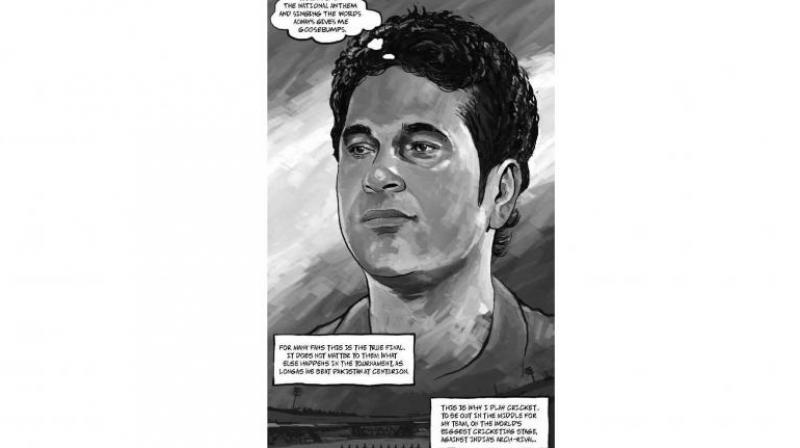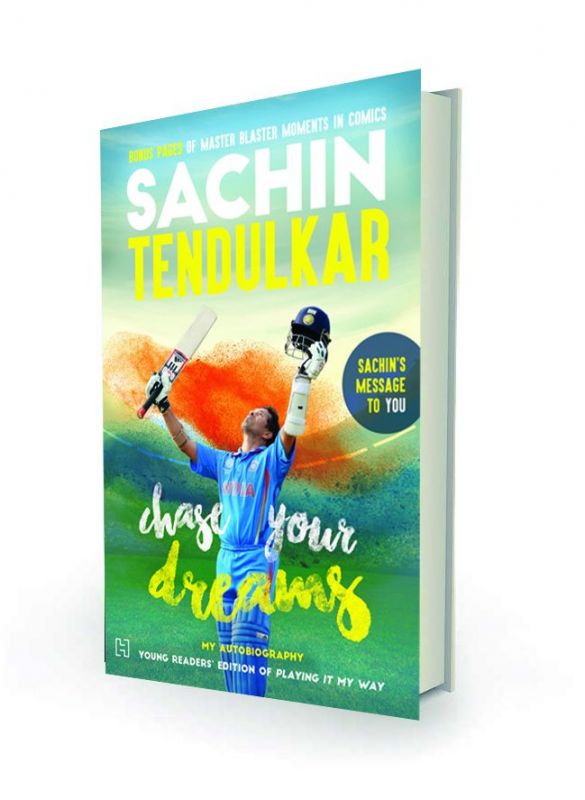Chase your dreams: Music, Sachin's 2nd love

Music was a constant presence in the Tendulkar household. All my siblings would regularly listen to the radio and always followed the then popular weekly Hindi film music programme — Binaca Geetmala (garland of songs). My exposure to music increased when my father bought a cassette player, which miraculously allowed everyone to listen to music of their choice. Both my brothers were fans of the famous ghazal singer Pankaj Udhas. I couldn’t really appreciate his songs then, but I was always in the room when they were played and listened to my brothers discussing the finer points of music.
Music soon became my second love after cricket and it has remained that way ever since. I enjoy listening to all kinds of Indian music, from film songs to the more classical variety, and I always feel relaxed with my headphones on. Later, during tours abroad, I began to pick up on Western music and I now love listening to Pink Floyd, U2, Dire Straits and many others. I passed that taste for Western music on to Ajit, and it is now an important feature of the Tendulkar household.
At the end of the day we were both not out, with Vinod on 182 and me on 192, and the following morning, we both made our double centuries and then just kept on batting — despite Achrekar Sir wanting us to declare the innings. We could hear our assistant coach scream our names and shout instructions for 10 minutes, but we pretended not to hear him. At lunch we had reached 748-2, of which I had contributed 326. As soon as we left the field I was informed by the assistant coach that I was in serious trouble. Achrekar Sir thought that we had more than enough runs to declare, and if we weren’t able to bowl the opposition out for less we did not deserve to be in the final. I decided to declare right away to save myself from Sir’s anger that evening. Vinod asked me not to, however, because he was not out on 349. He pleaded with me to give him one more ball so that he’d reach 350.
So I rang Sir from a public phone next to the ground and the first question he asked was how many wickets we had managed to take before lunch. That was Sir’s style. He was well aware that we hadn’t declared. I informed him that I was about to declare and that Vinod wanted to speak to him. But Vinod was scared of Sir and ended up not saying a word about batting on for another over.
 Chase your dreams by Sachin Tendulkar, Hachette India, Rs 299
Chase your dreams by Sachin Tendulkar, Hachette India, Rs 299
After the Test series we stayed in Australia, as the World Cup — my first — was just a few weeks away.
In this World Cup, India failed to make to the semi-finals, despite being competitive in most of the matches. We lost to England and Australia by the narrow margin of nine runs and one run respectively, and our second match against Sri Lanka was washed out because of rain.
The high point of the tournament for us was the match against eventual winners Pakistan on March 4, 1992 at Sydney. Against a hostile spell of fast bowling from Wasim Akram, Vinod Kambli and I put together an important partnership and I followed it up with another with Kapil Dev, who scored a valuable 35 off just 26 balls. I was unbeaten on 54 at the end of the innings. Our total of 216 wasn’t a big score to defend, but our bowlers and fielders were charged up and we were cheering each other on and giving the Pakistan batsmen a hard time.
I bowled my full quota of 10 overs, conceding just 37 runs and picking up the vital wicket of opener Aamer Sohail. Our eventual victory was very satisfying and by the end of the match I had completely lost my voice because of all the shouting. It was the first time India had played Pakistan in the World Cup since the tournament began in 1975 and it was the start of a string of victories against them in World Cups. The 1992 victory was particularly pleasing because I was also Player of the Match.When we returned to India I was a transformed cricketer.
I have to confess that I did not actually see what millions of Indians watched with ecstasy and delight that night. I did not see my ultimate dream being fulfilled, the moment I had waited to savour since making my international debut in November 1989. The reason was that when M.S. Dhoni hit the winning six at the Wankhede Stadium, I was with Virender Sehwag in the dressing room, praying. I wasn’t asking God to help us win. All I wanted was that God should do what was best for us, for Indian cricket and for the Indian cricket team.
It was only after Dhoni’s shot had finally crossed the boundary that I went out and embraced an emotional Yuvi. It was one of those life-changing moments, and we wanted to live each and every second of it.
Virat and Yusuf Pathan lifted me on to their shoulders and someone gave me an Indian flag to wave on a victory lap in front of an ecstatic Wankhede crowd. What more could I ask for? Life, to be honest, seemed complete. It was the greatest moment of my cricketing journey.
Excerpted with permission from Chase Your Dreams by Sachin Tendulkar, published by Hachette India

